Last updated on October 2nd, 2024 at 07:42 am
What is rice?
Rice is a cereal grain and one of the most important staple foods for billions of people around the world. This blog post aims to make it clear once and for all: Is rice gluten free?
Rice is a member of the grass family, grown in more than 100 countries, and provides more than 20% of the calories consumed worldwide by humans.
Rice has various forms such as long-grain white rice, short-grain brown rice, wild rice, sticky rice, Japanese sushi rice, black forbidden rice, and more.
Each type of rice has unique characteristics such as flavor, aroma, texture, and cooking time that make it suitable for different dishes.
In addition to its versatility in cooking, it is also higher in carbs.
Rice is a versatile grain with multiple gluten-free options for those looking to maintain a specific lifestyle or adhere to dietary restrictions.
Furthermore, rice can be incorporated into many dishes, including stir-fries, soups, salads, desserts, and more.
Is Rice Gluten free?
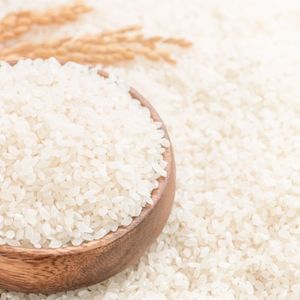 Is rice gluten free? The short answer is yes. Rice, whether it be in its raw form or cooked, does not contain gluten.
Is rice gluten free? The short answer is yes. Rice, whether it be in its raw form or cooked, does not contain gluten.
This grain-like crop contains a variety of vitamins and minerals, and can even be used to make gluten-free pastas, bread, and other products.
While some manufacturers may use wheat flour to process their products for flavor, most rice sold does not contain gluten of any kind.
Therefore, families with children on a gluten-free diet do not need to worry about the presence of this allergen in common pantry staples like white or brown rice.
Overview and Definition of Gluten Free Rice
Gluten-free has become a widely used term for those trying to maintain a specific lifestyle or adhere to dietary restrictions, but what does it mean in relation to rice?
To ensure that your rice is completely gluten-free it is important to carefully read ingredient lists and be aware of any add-ons.
Rice is naturally gluten free, so when you purchase rice that has not been altered or has no added ingredients, it is safe to consume.
For example, instant rice and flavored rice are generally considered to be gluten free but must be checked for any added seasonings.
Many of the flavored/instant rice can contain gluten-containing ingredients, so it is important to check the label before purchase.
In addition, most rice products are processed in a facility that also processes wheat and other grains with gluten.
If this is the case, there may be some residual amount of gluten present in the product.
Therefore, always double-check the labels for cross-contamination warnings.
When in doubt, it is best to purchase certified gluten-free products or opt for wild rice or quinoa as a safer alternative.
By taking the extra steps to ensure that your food is gluten-free, you can rest assured knowing that you’re not consuming anything that could trigger an adverse reaction.
It is important to note that there are also other grains available on the market that provide a healthier alternative, such as amaranth, quinoa, and buckwheat.
These grains are all gluten free and offer nutrients, vitamins, and minerals for optimal health.
Is White Rice Gluten Free?
White rice is typically gluten-free, however, there can be some trace amounts of gluten present due to cross-contamination during processing.
Those who are highly sensitive to gluten should take extra care when selecting which types of white rice to buy.
To ensure it is completely gluten-free, look for brands that have been tested and labeled as such.
Additionally, if environmental concerns are a factor in making dietary choices, it is important to consider the possibility that arsenic or even heavy metals such as lead may be present in any kind of rice due to the way it is cultivated and stored.
Are rice noodles Gluten free?
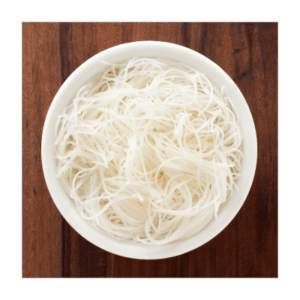 Rice noodles are a traditional, tasty type of noodle that is readily available in many stores.
Rice noodles are a traditional, tasty type of noodle that is readily available in many stores.
While they may not contain gluten ingredients, it is important to check the label before purchasing to ensure they are indeed gluten-free.
Rice noodles typically rely on tapioca starch or rice flour, both of which are naturally gluten-free ingredients.
However, depending on where and how they were made, there may be potential for cross-contamination with other gluten-containing ingredients.
Additionally, some manufacturers use wheat flour as one of their ingredients.
Therefore, it is best to double-check the labels and find products that are certified gluten-free or created in an allergen-controlled facility to guarantee the absence of any trace elements of gluten.
Furthermore, the safest way to avoid any contamination issues is to look for brands that produce rice noodles from 100% rice flour only and have a dedicated production line for them.
When done correctly and with proper labeling standards, rice noodles can be considered safe for individuals with celiac disease or other forms of gluten sensitivity/intolerance.
Is Brown Rice Gluten free?
Brown rice is naturally gluten-free, as long as it has not been processed or combined with any other ingredients that contain gluten.
Brown rice is a wholesome and nutritious food that can easily be incorporated into many different dishes.
This makes it a great option for individuals with celiac disease or those who are sensitive to the proteins found in some grains.
It is a good source of vitamins and minerals, including B vitamins, fiber, magnesium, phosphorus, selenium, and manganese.
Additionally, it contains antioxidants that may help protect against chronic diseases.
Therefore, when considering a gluten-free diet for celiac disease or other forms of gluten sensitivity/intolerance, brown rice can be
Overall, brown rice can be safely enjoyed as part of a healthy diet for those who are
Types of Rice and Whether They Are Gluten Free or Not
Rice is a staple in many cultures and dietary lifestyles. It comes in various forms:
- brown
- white
- long grain
- short grain
- wild
- jasmine
- basmati and more.
Is Basmati Rice Gluten free?
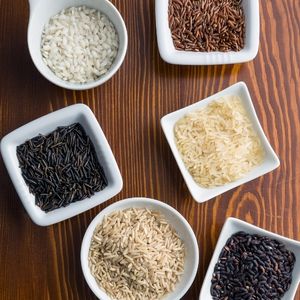 Basmati rice is a popular long-grain variety of rice originating in India and Pakistan.
Basmati rice is a popular long-grain variety of rice originating in India and Pakistan.
Like any other type of rice, it is naturally gluten-free and safe for those with sensitivities or allergies to the proteins found in some grains.
However, depending on where and how it was processed, there may be potential for cross-contamination with other gluten-containing ingredients.
Therefore, it is important to check labels carefully when purchasing Basmati rice to ensure that no traces of gluten have been added during production.
Additionally, some brands market their Basmati rice as being gluten free certified, which provides an extra level of assurance that the product has been kept free from any contamination issues.
Is Jasmine Rice Gluten free?
Jasmine rice is a fragrant, long-grain variety of rice from Thailand that is naturally gluten-free and safe for those with gluten sensitivity or allergies.
The absence of gluten in Jasmine rice makes it a great option for those following a gluten-free diet, as well as those looking to reduce their intake of processed wheat.
However, it is important to read labels and check for any added ingredients that may contain gluten before consuming Jasmine rice.
Additionally, some brands may process their products in facilities that also handle wheat-based products, so those with extreme sensitivity should look for a product labeled as “gluten-free certified”.
Disclosure: There are affiliate links in this post. If you click the link and buy something, I might get a commission at no additional cost to you! This is what keeps this blog running so consider using these links if you decide to try any of my recommendations.
Is Rice Flour Gluten free?
Rice flour is naturally gluten-free, making it a great substitute for those following a gluten-free diet.
Rice flour is made from finely ground rice and can be used as an alternative to wheat flour in many recipes.
It can be used for baking cakes, cookies, and pastries, as well as for making noodles and pasta dishes.
However, because it is produced in a facility that may also process wheat-based products, some rice flour products may not be safe for those with extreme gluten sensitivity.
Therefore, it is important to read labels and choose only products labeled as “gluten-free certified”.
When baking at home, use the same caution when substituting rice flour for wheat flour, and double-check labels on all ingredients.
For those with celiac disease, it is especially important to be vigilant when selecting food products as cross-contamination can occur in the same facility where wheat is being processed.
By only selecting products listed as “gluten-free certified”, you can be certain that the food item is safe to consume.
It is also important to note that not all rice flour products are considered gluten-free and it is important to understand the type of rice used to make a product before consuming.
Rice Alternatives and Where to Buy Gluten free Rice?
NOTE: Use my affiliate link to sign up for Thrive Market and avail yourself the 40% OFF(no code needed)
Are Rice Krispies Gluten Free?
Rice Krispies are a popular breakfast cereal that is loved by young and old alike.
The good news is that are rice krispies are gluten free!
Because they are made with only specially milled rice, there are no added gluten-containing grains.
They are considered safe to consume by those who follow a gluten-free diet.
It’s important to also look at the labels of other Kellogg’s products, as many of their cereals may contain wheat and barley ingredients.
To ensure that you’re getting a truly gluten-free product, it’s always important to read the ingredients label.
Does Rice Contain Heavy Metals?
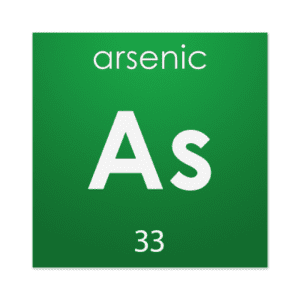 Does rice contain heavy metals? This is a question that has been asked by those looking to maintain a gluten-free diet.
Does rice contain heavy metals? This is a question that has been asked by those looking to maintain a gluten-free diet.
While there is no definitive answer, as it can depend on the type of rice and origin of production, it is known that some types of rice have higher levels of heavy metal contamination than others.
Therefore, it’s important to research and read labels carefully before consuming any type of rice.
Finally, staying informed on advances in research related to gluten-free foods and products can help ensure that you are making the healthiest choices for your dietary needs.
Overall, it is important to be aware of the potential risks of eating rice on a gluten-free diet and take steps to reduce your risk.
Does Rice Contain Glyphosate?
Does rice contain glyphosate? With increasing concerns about food safety, this is an important question to ask.
Recent studies suggest that certain types of rice may contain trace amounts of the herbicide glyphosate, a potential carcinogen associated with cancer risks and other health issues.
While the FDA states that it needs to study more data before reaching a definitive statement on its safety, it’s worth exploring whether your own varieties of rice have this chemical.
Research what types of rice are at the highest risk for containing glyphosate for peace of mind when making dietary decisions.
Is All Rice Gluten Free?
Is all rice gluten free? It is a common question among many trying to keep their gluten-free diet.
The answer is both yes and no – it depends on the type of rice.
It is also important to note that while most white rice does not have gluten in its grain form, there can be cross-contamination when it is processed at mills that handle wheat-based grains as well.
So ultimately, when choosing whether all kinds of rice fit into a gluten-free diet, there are a few factors to take into consideration: what type of grain it is; how well it has been tested for contamination; and if it meets your safety requirements for your health.
What is Sprouted Brown Rice?
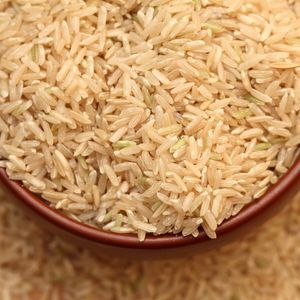 Sprouted brown rice is a type of whole-grain rice that has been allowed to germinate.
Sprouted brown rice is a type of whole-grain rice that has been allowed to germinate.
It is grown by soaking it in water and then allowing it to sprout, which increases the nutrient content of the grain.
Sprouted brown rice has a higher nutritional value than regular brown rice, including more vitamins and minerals that are beneficial for health.
In addition, sprouted brown rice does not contain gluten and is therefore lighter on the digestive system than some other types of grains.
Its high level of antioxidants may also provide protection from heavy metal toxicity, making it a popular choice for those with dietary restrictions or sensitivities.
Is sprouted brown rice safer?
Is sprouted brown rice safer? Understanding whether or not types of rice are gluten free is important, as many people have sensitivities to it.
However, when looking into grain-based foods like rice, there may be even more of a safety concern.
Sprouted brown rice is becoming an increasingly popular choice among health-conscious consumers who want to make sure their food is safe.
One advantage of sprouted brown rice is that the germination process helps break down some of the proteins and minerals in these grains, making them easier to digest than other varieties of wild or white rice.
Additionally, studies suggest that using sprouted grains may limit possible contamination from heavy metals such as arsenic and lead due to the shorter time they spend in the soil prior to being eaten.
Overall, residue levels found in the final product appear to be much lower than those found in ungerminated varieties.
Related articles
- Transitioning your child to a gluten and dairy-free diet
- Foods you should avoid feeding your child with autism
- Steps to improve your child’s diet

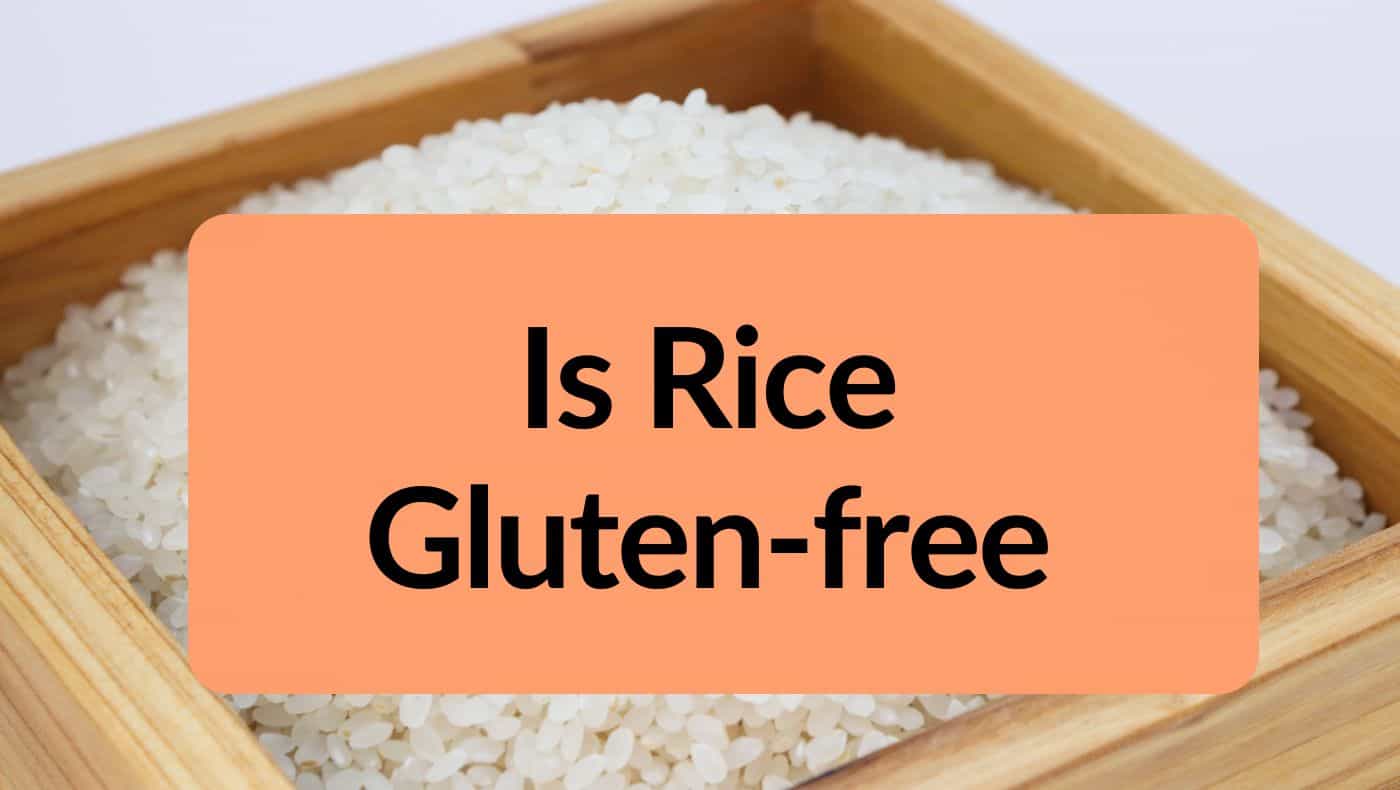



0 Comments